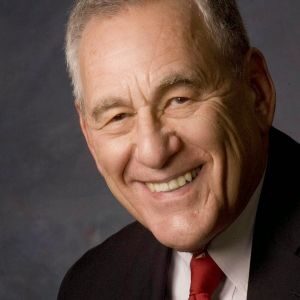The Supreme Court hearings on the Affordable Care Act and Gov. Paul LePage’s proposals to narrow MaineCare eligibility and services are both part of a national debate over a much bigger issue – the appropriate role of government.
The underlying question is what limits should be placed on government action. And mixed with that issue is another question: Do changing times, needs and expectations demand a changing role for government?
Money comes into consideration as well: Simple economics dictate that providing health care insurance to more people costs more money.
Even before the new federal health law can take full effect, current government health insurance programs – Medicare and Medicaid – have failed to control medical costs. They may have also created incentives for some health care providers — secure in the knowledge that they would be reimbursed — to increase their charges or even cheat. Providers are not regulated on what they charge.
If costs were the main factor to be considered, government could reduce eligibility for health care programs that it supports. Of course, it also tries to reduce fraud by either suppliers or individuals.
Cost reduction has been behind LePage’s proposals for MaineCare, the state’s version of Medicaid. In answering the question about the proper role of government, policies like the governor’s require that the scope of services should be reduced. He appears to believe that government should only do what it can afford out of current revenues. As a result, he has proposed that the scope of both eligibility and services should be reduced.
On the national level, the Affordable Care Act, called Obamacare by its opponents, is an attempt to greatly increase the number of people who have health insurance. It may be seen as a compromise between two sharply differing views.
Congressional Republicans argued that the number of insured could not be greatly increased without imposing unacceptably high costs and increasing government’s role, which they opposed.
Under those conditions, the uninsured would continue to receive care, often without making any payments, in hospital emergency rooms. The cost of their care would be covered by the insurance premiums of the insured.
The Democrats’ position was that almost everybody should be covered. Liberals argued that the government itself should insure everybody, thus gaining the ability to control costs. While taxes would increase, insurance premiums would disappear.
This approach is used in most developed countries, but some in the U.S. called it “socialism,” worrying the government was growing too big. There was insufficient support to adopt it.
President Barack Obama’s alternative, ultimately adopted by Congress, was to require almost everybody to purchase private insurance and to introduce competition into the insurance market to somewhat control costs.
While there was little argument that government-as-insurer could legally be the “single payer” of health care costs, some have disputed whether it has the constitutional right to require that people buy insurance. The current Supreme Court case grows out of that challenge to the law.
Whether the Constitution allows the government, in controlling the health insurance market, to require people to buy insurance is a political question, because there is room to interpret the Constitution either way.
Congress decided that such a government mandate was allowed, but the last word goes to the nine justices of the Supreme Court. The justices will determine if government has the powers given it in the health care law.
Without a clear legal answer, the issue remains a political one, even though it is in court. So we see signs of the justices lining up on both sides on the basis of their ideology, “conservative” or “liberal.” The court could end up acting more like a supreme legislative body than an impartial judge of the law.
The court’s decision will provide a new look at the proper role of government and the limits on it.
If the decision is that the mandate is not permissible, it is possible that the entire health care law would fall. Pre-existing illnesses could not be covered, for example, unless insurers had premium revenue from many more participants, especially healthy young people, many of whom would not otherwise buy insurance.
That’s called “the law of large numbers,” basic to almost all insurance, because it means that, at any one time, there will be many people paying premiums who won’t be making claims. Their payments are then used to pay those who claim benefits.
If the Supreme Court rejects the law, the health care system could go back to square one. Congress would then have to decide if the Affordable Care Act has created expectations that would have to be met in some other way.
Whatever the outcome, either approval of the current law or possible consideration of developing acceptable health care protection for more people, the real decision will be about the proper role of government.







